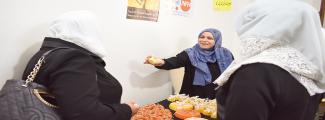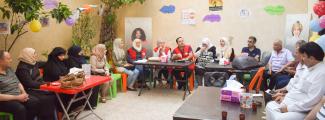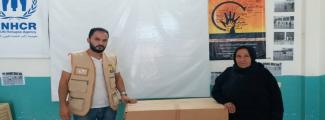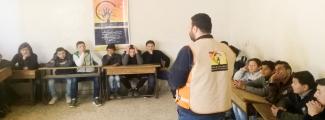With the aim of achieving local community awareness on the dangers and negative social/health impacts of early marriage, the Syrian Society for Social Development Team, in partnership with the UNFPA, carried out a campaign entitled “I’m still young, wait until I grow up” at the Women and Girls Safe Space (WGSS) in Hama. The five-day campaign was divided into two sections. The first section lasted three days.
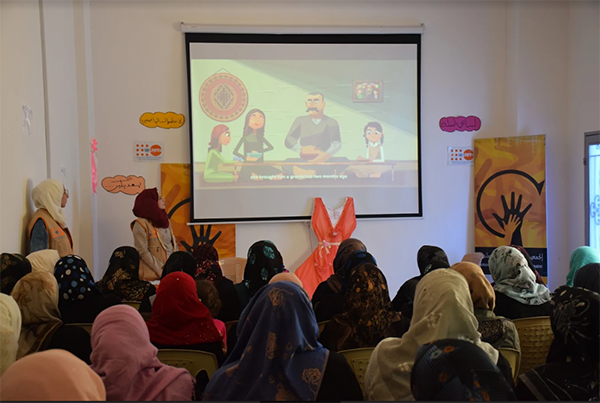
The first day took place at the WGSS, where an open discussion was held on amendments to the Personal Status Law regarding early marriage in the presence of the Syrian Arab Red Crescent.
On the second day, a questionnaire on early marriage opinion was conducted by the center’s mobile team at Ibn Rushd Street in Hama.

The third day was at the textile factory, where a sketch on early marriage was performed. After the sketch ended, we discussed with the workers at the factory their opinions and presented some health information on the risks of early marriage.
As for the second section, it lasted two days. The first day was divided into two parts. The first part was conducted at the WGSS in Hama, where we began by showing a sketch on early marriage and later on had a discussion with the women about the sketch.
Then, we presented a reportage showing people’s opinions on early marriage where the questionnaire was conducted. The second part was held in Qamhaneh and also included a sketch on early marriage as well as a video showing the consequences, negative impacts of early marriage and the appropriate age to get married.
Regarding the second day, it was conducted in Maardess with the presence of the Syrian Arab Red Crescent, which participated in the discussion on amendments to the Personal Status Law related to early marriage.
The campaign was concluded by forming a dress and writing statements and opinions by attendees about early marriage.

